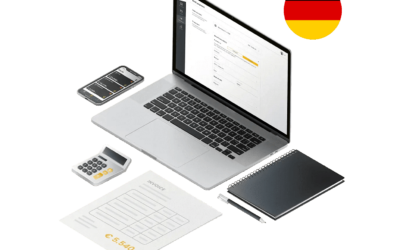Benefits of company accounting
When starting a new business in Germany, there are so many things to think about. Owners of small newly opened companies are equipped with all the time-consuming tasks associated with starting a business. At this stage, it often happens that one very important aspect, namely the accounting for company, is inadvertently overlooked or underestimated.
At the beginning, most firms’ owners take responsibility for maintaining corporate records. This, however, is not an easy task. Accounting for firms involves a different type of skill that not everyone has.

For example, developing a new business requires imagination, flexibility, and out-of-the-box thinking. These are great qualities for an entrepreneur, but the moment you are in charge of the accounts, you must comply with all laws, regulations and rules arising from the legislation. This change from one to another type of thinking is associated with excess energy expenditure. In the following lines, we will tell you about the benefits of accounting for organization in Germany.
The benefits of maintaining accurate, accurate, reliable, objective and legal accounting records in Germany for any company are undeniable and can be boiled down to the following, more important:
Efficient resource management
Keeping records allows you to more effectively manage your company’s finances and resources. An accountant monitors cash flow, optimizes expenses and helps make informed investment decisions.
Timely reporting
Regular reporting is an integral part of business activities. The accountant prepares all necessary financial reports on time, which is important for compliance with legal requirements and transparency with stakeholders.
Financial guarantees
Leading companies insure their professional liability. The insurance amounts amount to tens of millions of euros. Insurance is needed in case the client loses his money due to an outsourcer’s mistake in the form of:
- additional charges,
- fines,
- penalties,
- etc.
This is one of the key advantages of accounting for private business over an in-house accountant.
Tax compliance
An accountant knows the intricacies of taxation and always monitors current changes in legislation. This allows your organization in Germany to comply with tax discipline, avoiding fines and troubles from the tax authorities.
Saving time and resources
Bookkeeping requires time and specific knowledge. Hiring an experienced accountant allows business owners to focus on core tasks and leave financial matters to a professional.
Risk reduction
Accounting controls help identify potential risks and misunderstandings. This allows you to quickly respond to unforeseen situations and minimize possible losses.























































